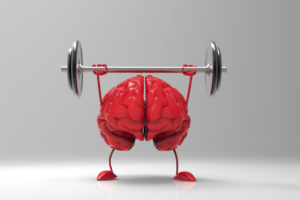Health: What It Is & How To Support It
The word ‘health’ is used in varying contexts but can be defined as a state of being sound in all aspects of one’s life.
In other words, it refers to the overall state of an individual’s emotional, mental, and physical wellbeing.
According to the World Health Organization, “Health is a resource for everyday life, not the objective of living.” Health is a positive concept emphasizing social and personal resources, as well as physical capacities.” In addition to this, it is essentially the physical and mental wellbeing of an individual that leads to a healthier social and emotional state to support a fuller life.

All in all, maintaining good health is crucial to living a stressfree and active life.
Some Fast Facts About Health
- Health is the complete absence of any sort of hindrance to living a happy life within the concerned society.
- It is not just the absence of diseases and deformities, but also the ability to fight back against symptoms of bad health in every context.
- Health depends upon personal, social, and environmental factors.
- Regular exercise, a healthy diet, and precautionary measures are the key to a healthier life.
In recent studies, researchers have restated the meaning of health as the ability to adjust to the new dangers and frailties. Therefore, it is important to understand the types of health that can affect an individual’s life.
Types Of Health Concerning A Person’s Life
Though, health concerns a greater aspect of a person’s life, mental and physical wellbeing are the most influential ones. The rest of the factors are, indeed, responsible for maintaining these two aspects, and vice-a-versa.
- Mental Health
Since mental health is dependant on personal experiences and varies from person to person, it’s a bit tough to describe the absolute mental wellbeing. In a sensible approach to understanding mental wellbeing, it is described as a person’s social, financial, and emotional wellbeing.
It might be foolhardy to consider that a person is mentally healthy if they do not suffer from anxiety, depression, or any other mental sickness. Since these disorders only concern the intellect of a person and not the overall behavior. Therefore, a better understanding of the behavioral and personality traits of a person are often used to assess the mental ailments.
With the advancement in technology and recent improvements in testing, some symptoms of mental sickness are recognized. In fact, modern equipment such as CT Scan and genetic analyzers have allowed medical personals to visualize different symptoms of issues related to one’s mental health.
- Physical Health
As compared to mental health, physical health is easier to define. It refers to a careful balance between the individual and the surrounding for bodily functions to perform at their best. In the absence of any disease or infirmity due to regular exercise, nutritious diet intake, and sufficient rest, a person can experience a healthy physique.
Treatment is needed only if a person is diagnosed with any symptoms concerning their health, visually or through laboratory procedures. On the other hand, in order to decrease any potential risks for acquiring infections or any disease, pursuing a healthful lifestyle is considered. For example, a physical fitness regime can help improve endurance and immunity against various heart disorders, along with enabling proper muscular function and body composition.
It is noteworthy that physical health also affects mental health. Therefore, enabling the utmost coordination between the nervous and the muscular systems. In addition to this, physical fitness and wellbeing also help reduce the risk of sustaining severe injuries by supporting conscious decision making.
So, What Factors Affect Personal Health?
Personal health depends on a variety of factors. These include a person’s genetic heritage, the environment a person lives in, and the day-to-day regime. For example, a person inheriting an unusual genetic pattern may suffer from not-so-optimum health. It depends on these factors whether mental or physical health is affected.
People living in suburban areas or areas with considerable health alerts are more likely to be infected with common flu and other acute diseases. It is noteworthy that environmental conditions may have an even bigger impact on the individual’s health. The WHO suggests that access to healthcare plays a role, but there are even greater factors affecting an individual’s health.
- The Place Where A Person Lives
According to WHO, the environmental conditions in a region such as pollution levels, air quality,
Traffic conditions, population, and alike are all responsible for a person’s health condition. The availability of healthy resources such as medicines and basic healthcare is therefore considered a human right. Some studies suggest that these basic factors in combination with genetic data may alter health conditions for generations to come.
- Financial Stability
Socioeconomic status can also affect the health of a person, both mentally as well as physically. People believing their socioeconomic standard to be lower than others have been observed to suffer from higher stress. The stress may be due to low income which can affect the daily life of the individual. This can further lead to marital disruption, unemployment, marginalization, and in some cases- discrimination, as well.
- Dietary Fulfillment
Adequate dietary fulfillment refers to an appropriate diet intake by an individual that supplies the body with all the necessary nutrition. This is not only needed to keep the body working but also helps to keep disorders and infirmities at bay. For example, the blog post https://microbeformulas.com/blogs/microbe-formulas/an-intro-to-mimosa-pudica/ suggests using mimosa pudica for weight loss. There are many such examples of dietary inclusions which not only helps fulfill the nutrition needs but also help protect against diseases. And, in the absence of such foods in daily diet, the overall health of an individual may decline over time.
- Personal Relations
Various psychological studies have revealed from time to time, the health of the relationship a person has with their partner can affect the overall health of the person as well. For example, a good relationship can help boost immunity and encourage taking up healthy habits. On the other hand, a troubled relationship may lead to many health disorders ranging from weight gain to depression, anxiety, and many more. It is noteworthy that maintaining healthy personal relations is a choice and not an obligation.
Although you cannot command all of these factors, ensuring some easy and effective lifestyle practices can help support good health.
Supporting Good Health…
Maintaining good health is a lifelong process. It is a thoughtful process that can be achieved through a healthful lifestyle. It is not just the physical or mental health that needs to be maintained. In fact, a careful balance between all the aspects of life ensuring a healthy social, mental, physical, financial, spiritual, and emotional wellbeing is the one and only way to achieving utmost personal health.
In order to support good health, one must learn ways to cope with stress, while ensuring a healthy diet intake and regular exercise. Along with, managing healthy financial and socio-economic status. Though good health in all aspects can be subjective and vary from person to person, there are certain steps that are common to all. For example, washing hands before and after meals, consuming clean drinking water and alike precautions can ensure that you don’t get infected by parasites. Thus, keeping infections at bay.
In a nutshell, good health cannot be achieved overnight. Active participation in a healthy lifestyle and continuous awareness regarding the same can prove to be beneficial in maintaining the overall health of a person.
According to the Mckinley Health Center, at the University of Illinois IL, “Wellness is a state of optimal well-being that is oriented toward maximizing an individual’s potential. This is a lifelong process of moving towards enhancing your physical, intellectual, emotional, social, spiritual, and environmental well-being.”



































No comments